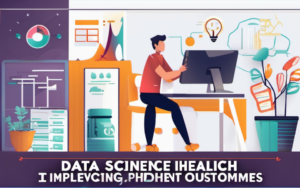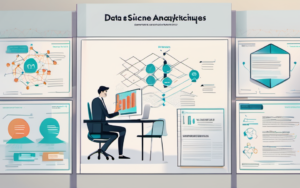Data science is a rapidly growing field with the potential to revolutionize various industries. However, the lack of diversity in data science is a major issue that needs to be addressed. A diverse and inclusive data science community is crucial for ensuring that this technology is developed and used ethically and effectively.
The Importance of Diversity in Data Science
The Current Landscape
The current landscape of data science is overwhelmingly dominated by white males. This lack of diversity leads to a narrow range of perspectives and experiences, which can result in biased algorithms and data analysis. The underrepresentation of women, minorities, and people from diverse backgrounds in the field raises concerns about fairness, inclusivity, and the overall impact of data science on society.
The Need for Change
The need for change is clear. A diverse and inclusive data science community is essential for building trust in the field, creating more equitable outcomes, and ensuring that data science is used to benefit everyone. This change requires a concerted effort from individuals, institutions, and organizations to promote diversity and inclusion in data science.
Benefits of Diversity in Data Science
Improved Data Collection and Analysis
Diversity brings a wider range of perspectives and experiences to data collection and analysis. This can lead to more accurate and comprehensive datasets, as well as a more nuanced understanding of the data. By incorporating diverse viewpoints, data scientists can better identify and address potential biases in their data, leading to more reliable and unbiased insights.
Enhanced Innovation and Creativity
Diversity fosters innovation and creativity in data science. When people from different backgrounds come together, they bring fresh ideas and perspectives, leading to new approaches and solutions. This can lead to the development of new algorithms, tools, and applications that can benefit society in countless ways.
More Inclusive and Equitable Outcomes
Diversity in data science is crucial for ensuring that the outcomes of data-driven decisions are inclusive and equitable. By incorporating the perspectives of diverse groups, data scientists can develop algorithms and models that are fair, unbiased, and do not perpetuate existing societal inequalities.
Addressing the Diversity Gap
Mentorship and Sponsorship Programs
Mentorship and sponsorship programs can play a vital role in addressing the diversity gap in data science. These programs can provide support and guidance to individuals from underrepresented groups, helping them navigate the challenges of entering and advancing in the field. Mentors and sponsors can provide valuable insights, networking opportunities, and career advice.
Education and Outreach Initiatives
Education and outreach initiatives can help to increase the diversity pipeline for data science. By introducing data science concepts to students from diverse backgrounds at an early age, these initiatives can foster interest and create a more inclusive and representative future for the field.
Creating Inclusive Work Environments
Creating inclusive work environments is essential for attracting and retaining diverse talent in data science. This includes fostering a culture of respect, equity, and belonging. By promoting diversity and inclusion, organizations can create a welcoming and supportive atmosphere where everyone feels valued and appreciated.
The Future of Diversity in Data Science
Building a More Equitable and Representative Field
The future of data science lies in building a more equitable and representative field. This requires a continued commitment to diversity, inclusion, and equity. By actively promoting diversity and inclusion, we can ensure that data science is a field that benefits everyone.
Leveraging Data Science for Social Good
Diversity in data science is crucial for leveraging the power of this technology for social good. By incorporating diverse perspectives, data scientists can develop solutions that address societal challenges and promote positive social change. This includes addressing issues such as poverty, inequality, and climate change.
Data science has the potential to transform society in many ways. However, to realize this potential, it is essential to address the lack of diversity in data science. By promoting diversity and inclusion, we can create a more equitable and representative field that benefits everyone. This is not just a matter of fairness; it is a matter of ensuring that data science is used to build a better future for all.




